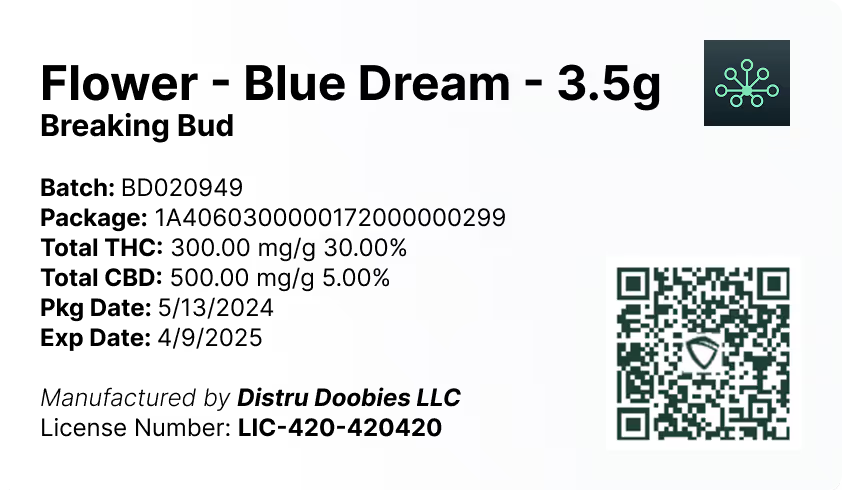So you're thinking about getting into THC distillation? Smart move. The cannabis industry has exploded over the past few years, and distillate is where a lot of the action is happening. Whether you're already processing cannabis or looking to expand your operation, understanding distillation of THC can be a game-changer for your business.
Let’s get something clear, though. THC distillate isn't just another concentrate. It's more like the purified essence of cannabis, stripped down to almost pure THC. We're talking 90-99% potency compared to flower that might hit 20% on a good day. It’s not a straightforward process either. There are several different cannabis distillation methods out there, and picking the wrong one can cost you time, money, and headaches.

This guide breaks down the main THC extraction techniques, what equipment you'll need, and how to figure out which method makes sense for your operation. Here’s what you need to know about THC distillation.
What Is THC Distillation?
Think of THC distillation like making moonshine, but instead of concentrating alcohol, you're concentrating THC. It’s also a lot less illegal. The basic idea is using heat and pressure to separate THC from everything else in the cannabis plant, including the fats, waxes, chlorophyll, and other compounds that can make concentrates taste like lawn clippings.
The end result is what people call "liquid gold," a clear, amber oil that's almost flavorless and incredibly potent. While your starting material might be 20% THC, the distillation process can get you up to 99% pure THC.
Why does this matter? First, distillate is like a blank canvas. Since it doesn't have much flavor or smell on its own, you can turn it into pretty much any product without fighting against the natural cannabis taste. Second, you get consistency when you nail your process, with every batch coming out the same. Third, pure distillate stays stable much longer than other concentrates.
From a business perspective, distillate opens up a lot of doors. You can use it as a base ingredient for other manufacturers, develop your own product lines, or both. But how do you make it in the first place?

The THC Distillate Process: How Is THC Distillate Made?
Making THC distillate isn't something you can knock out in your garage. It's a multi-step process that requires the right cannabis distillate equipment and careful attention to detail. But understanding the workflow helps you figure out what method makes sense for your operation.
The standard THC distillate process breaks down into four main steps. First, you extract cannabinoids from your cannabis using solvents like ethanol, CO2, or hydrocarbons. This gives you a crude oil that's potent but still full of unwanted stuff. Next comes winterization, where you mix the crude oil with ethanol and freeze it to separate out fats and lipids. After filtering out those impurities, you move to decarboxylation. This step involves heating the oil to convert inactive THCA into psychoactive THC.
.png)
The final step is actual distillation, where you use precise distillation temperature for THC and vacuum pressure to vaporize and collect pure THC. Each compound in the oil has a different boiling point, so you can literally pull out just the THC and leave everything else behind.
Process control and documentation aren't just nice features, they're essential for compliance. Every step needs to be tracked, measured, and recorded. This is where cannabis manufacturing software becomes crucial.
Cannabis Distillation Methods Explained
Now that you understand the basic process, let's break down the main cannabis distillation methods. Each has its own pros and cons, and the right choice depends on your scale, budget, and production goals.
.png)
Short Path Distillation
Short path distillation is probably what you'll see in most small to medium operations. It uses lab glassware, a vacuum pump, and gentle heat to separate compounds. The setup is relatively straightforward and doesn't require a massive upfront investment.
Lower equipment costs and flexibility for small batches are the major benefits to this method. You can experiment with different parameters and dial in your process without committing to expensive industrial equipment. Unfortunately, it's slower, more manual, and harder to scale up. If you're planning onto processingprocess hundreds of pounds per month, short path might become a bottleneck.
Wiped Film (Thin Film) Distillation
If you want something that’s easy to expand into a larger operation, this might be a good option to consider. Wiped film distillation passes THC over a heated, rotating surface under vacuum. It's the method most commercial cannabis processors choose because it can handle high throughput while delivering consistent results.
The benefits of THC distillate produced this way includes more consistent quality in addition to being highly scalable. You can process larger volumes and get repeatable results batch after batch. Higher initial equipment costs and a steeper learning curve are both downsides, but if you're planning to scale, this is usually the way to go.
.png)
Molecular (Fractional) Distillation
This is the most precise method, separating cannabinoids and terpenes based on their exact boiling points. It's complex and requires skilled operators, but it gives you incredible control over your final product. You can target specific compounds with surgical precision.
Most smaller operations won't need this level of complexity, but larger manufacturers producing specialized products might find the investment worthwhile.
Equipment and Techniques for THC Distillation
Getting into distillation means investing in the right gear. The good news is you don't need to break the bank to get started, but you do need to understand what's essential versus what's nice to have. Cannabis funding usually requires you to have a breakdown of the equipment you intend to use, so this is worthwhile knowledge.

For any distillation setup, you'll need vacuum pumps, heating mantles, condensers, and collection vessels. If you're going the short path route, you're looking at mostly glassware. For wiped film operations, you'll need stainless steel evaporator units that can handle higher volumes. The key is matching your equipment to your expected throughput.
Quality control isn't optional in cannabis distillation. You need standard operating procedures for every step, batch tracking systems, and consistent testing protocols. THC distillate safety starts with proper equipment maintenance and follows through with rigorous documentation.
Here's where inventory management becomes critical. You're dealing with valuable concentrate that needs to be tracked from input materials through final products. Many operators struggle with Metrc compliance because they're trying to manage complex production workflows with spreadsheets.

This is exactly where Distru shines. The platform handles live Metrc integration, so your production data flows directly into compliance reporting. Instead of spending hours on paperwork, you can focus on optimizing your distillation process. The time savings alone often pays for the software, not to mention the reduced risk of compliance errors that could shut down your operation.
Benefits and Applications of THC Distillate
So why is everyone talking about distillate? The benefits are pretty compelling, especially if you're thinking about diversifying your product line or improving your margins.
First up is potency and purity. With THC levels hitting 90-99%, a little goes a long way. This makes distillate cost-effective for both manufacturers and consumers. You're getting more bang for your buck compared to other concentrates that might top out at 70-80% THC.
Then there's versatility. Since distillate is odorless and tasteless, it's perfect for products where you don't want that earthy cannabis flavor. Think gummies that actually taste like fruit, or beverages that don't make you feel like you're drinking bong water. The various THC distillate uses span everything from vape cartridges and edibles to tinctures and topicals.
Consistency is another huge advantage. When you nail your process, every batch should be virtually identical. This makes product formulation predictable and helps with regulatory compliance around labeling and dosing.
From a business perspective, distillate opens up opportunities for white-label manufacturing and B2B sales. You can supply other brands with high-quality base material, or use it to develop your own product lines. Many successful cannabis companies have built their entire business model around distillate-based products because of the flexibility and market demand.

Safety, Compliance, and Consumption of THC Distillate
Safety in distillation of THC isn't just about protecting your workers (though that's obviously important). It's about protecting your business from liability, regulatory violations, and product recalls that could tank your reputation overnight.
From a manufacturing perspective, you need proper ventilation, fire safety equipment, and trained operators who understand the risks of working with solvents and high-temperature equipment. Regular equipment maintenance and inspection protocols aren't optional. One equipment failure during a distillation run can contaminate an entire batch.
.png)
Lab testing is non-negotiable. Every batch needs to be tested for potency, residual solvents, pesticides, heavy metals, and microbials. Unregulated or improperly processed distillates have given the industry black eyes in the past, and regulatory agencies are cracking down hard on operators who cut corners.
Documentation is where many operators struggle. You need detailed records of every input material, process parameter, and test result. Best practices include maintaining chain of custody documentation, implementing robust batch tracking systems, and ensuring all data is backed up and accessible for inspections.
When it comes to consumption, knowing how to consume THC distillate safely is crucial information to pass along to customers. Whether they're vaping, making edibles, or using it sublingually, proper dosing guidance helps prevent overconsumption incidents that reflect poorly on the entire industry.
This is another area where Distru helps cannabis manufacturers and distributors maintain accurate recordkeeping and streamline compliance reporting, turning what used to be a paperwork nightmare into a manageable workflow.

THC Distillate vs Other Cannabis Extracts: What's the Difference?
Not all cannabis concentrates are created equal, and understanding the differences helps you choose the right product for your market and manufacturing goals.
THC distillate sits at one end of the spectrum with maximum purity and potency. Compare this to full-spectrum oil, which retains more of the plant's original cannabinoids and terpenes. The distillate vs. full-spectrum oil debate often comes down to whether you want a clean slate for product development or prefer the "entourage effect" that comes from multiple compounds working together.
Live resin takes a different approach entirely, focusing on preserving terpenes through specialized extraction and curing processes. It's popular with consumers who want maximum flavor and aroma, but it's less versatile for manufacturing because those strong flavors can overpower product formulations.
THC isolates go even further than distillate, stripping away everything except pure THC crystals. While this gives you absolute control over potency, you lose the flexibility that comes with distillate's liquid form.

Each option has its place in the market. Distillate works well for manufacturers who need consistent, neutral-tasting base material for a variety of products. Full-spectrum oils appeal to consumers interested in potential therapeutic benefits from multiple cannabinoids. Live resin targets the premium market where flavor and aroma matter most.
For most cannabis operators, distillate offers the best balance of purity, versatility, and market demand. It's easier to work with than crystalline isolates and more flexible than flavor-forward concentrates like live resin.
Key Considerations for Cannabis Operators
Choosing the right approach to distillation of THC comes down to scale, budget, and regulatory requirements. Short path works for smaller operations, while wiped film makes sense for higher volumes. But here's what separates successful distillation operations from those that struggle: seamless compliance management.
Most cannabis operators are still drowning in spreadsheets and manual Metrc entries, losing hours every week to paperwork instead of perfecting their distillation process. Distru eliminates that pain with live Metrc integration that automatically syncs your production data, real-time inventory tracking that prevents compliance violations, and batch management that scales with your operation. The result is that you spend time growing your business instead of fighting with regulatory paperwork. Ready to save 10+ hours per week on compliance? Schedule a demo and discover why the fastest-growing distillation operations choose Distru.










